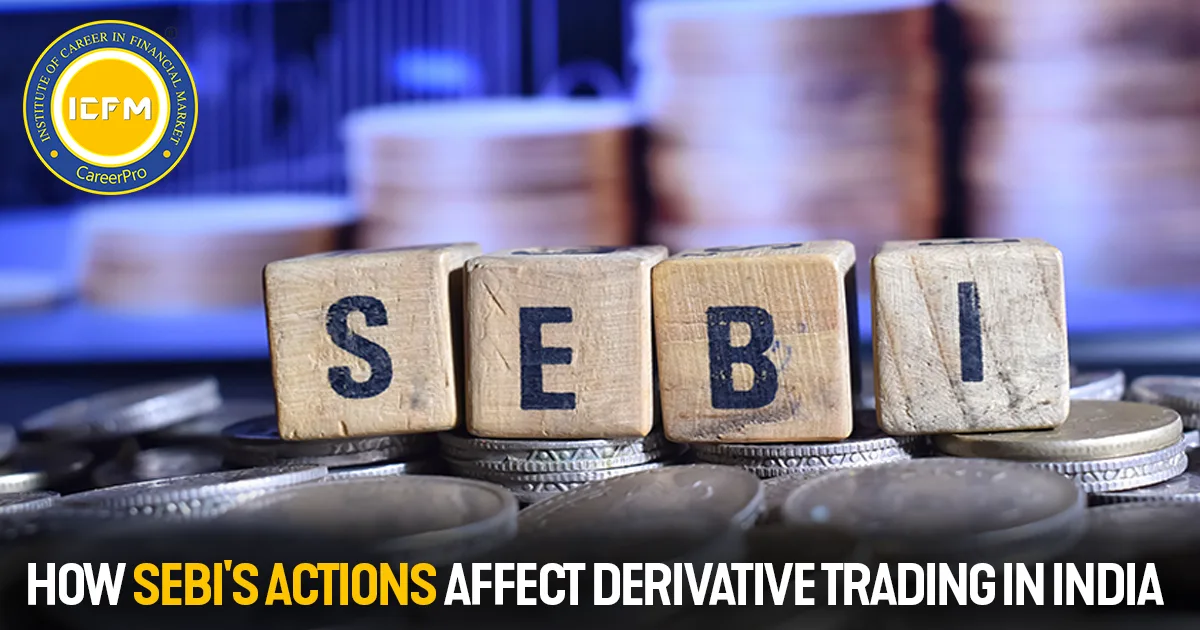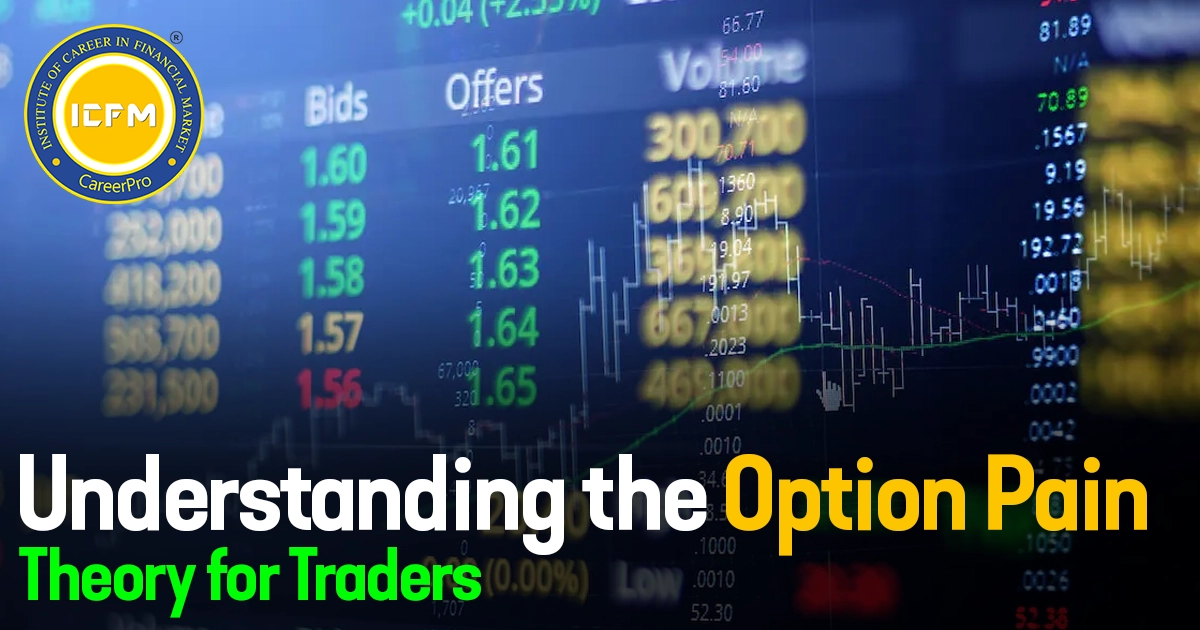How SEBI's Actions Affect Derivative Trading in India
The Securities and Exchange Board of India (SEBI) plays a critical role in the regulation, supervision, and development of India's financial markets, including derivative markets. Its primary goal is to ensure that the markets remain fair, transparent, and efficient, while protecting investors and minimizing systemic risk. SEBI's actions directly influence how derivatives are traded, ensuring that market participants adhere to ethical and regulatory standards. In this blog, we'll explore how SEBI’s regulations affect derivative trading in India, and how these actions shape the behaviour of traders and investors.
1. Overview of SEBI’s Role in India’s Derivatives Market
SEBI, established in 1988, is the regulatory authority for securities markets in India. Its responsibilities span across ensuring fair practices, protecting investor interests, promoting market integrity, and facilitating the growth of the securities market. In the context of derivative trading, SEBI oversees the rules governing futures and options trading, margin requirements, settlement processes, and the introduction of new financial products.
The core actions of SEBI that impact derivative trading include:
- Regulating Market Participants: SEBI oversees the functioning of stock exchanges, brokers, and clearing houses.
- Setting Standards for Derivatives Contracts: SEBI sets the framework for futures and options contracts on various assets like stocks, indices, and commodities.
- Ensuring Investor Protection: SEBI enforces transparency and fair trading practices, aiming to prevent manipulation and fraud.
- Market Development: SEBI introduces new rules and guidelines to encourage growth while managing risks in the derivative market.
2. Setting Contract Specifications and Product Development
SEBI plays a significant role in determining the contract specifications for derivatives traded on exchanges like the NSE (National Stock Exchange) and BSE (Bombay Stock Exchange). This includes specifying the underlying assets, contract size, tick size, and trading hours. For example:
- Nifty Futures and Options Contracts: SEBI defines the contract size, which is essential for liquidity and risk management.
- Commodity Derivatives: SEBI has been instrumental in regulating commodity futures markets, determining which commodities can be traded and the specifications of these contracts.
In recent years, SEBI has allowed the introduction of new derivative instruments like currency derivatives and interest rate derivatives, thus broadening the scope of derivative products available to Indian traders. SEBI’s regulatory actions ensure that these products meet the needs of various market participants, whether for hedging or speculation.
3. Margin Requirements and Risk Management
One of SEBI’s most crucial roles is regulating the margin requirements for derivative trading. These requirements ensure that traders have sufficient capital to cover potential losses, which helps in preventing excessive speculation and maintaining market stability.
- Initial Margin: SEBI mandates the minimum amount of capital that must be deposited before entering a derivatives contract. This acts as a safeguard for the broker and exchange.
- Maintenance Margin: SEBI requires traders to maintain a certain balance in their margin accounts. If the balance falls below this threshold due to adverse price movements, the trader must deposit additional funds (a margin call).
By setting appropriate margin levels, SEBI helps in curbing the risk of defaults and minimizing systemic risk. Moreover, it ensures that margin requirements are not overly lax, which could encourage reckless trading behavior.
For example, SEBI's introduction of mark-to-market margining ensures that the value of derivatives positions is adjusted daily to reflect current market prices, which helps in reducing the potential for market manipulation.
4. Investor Protection and Market Integrity
SEBI takes proactive measures to protect retail investors and safeguard the integrity of derivative markets in India. Some of these include:
- Preventing Market Manipulation: SEBI strictly monitors derivative contracts for any signs of price manipulation, insider trading, or collusion. It enforces regulations that ensure fair price discovery and transparency.
- Surveillance Mechanisms: SEBI has developed robust surveillance systems that monitor the trading of derivatives, identifying unusual price movements or trading patterns that could indicate manipulation or insider trading. When such activities are detected, SEBI steps in to investigate and take corrective actions.
- Investor Education: SEBI frequently issues guidelines and conducts awareness programs to help investors understand the risks involved in trading derivatives. This is particularly important in the Indian context, where many retail investors might be unfamiliar with complex derivative instruments.
By fostering a secure environment for traders, SEBI ensures that derivative markets remain trustworthy and accessible to all participants, whether they are individual investors or institutional players.
5. Regulation of High-Frequency and Algorithmic Trading
The rise of algorithmic trading (Algo trading) and high-frequency trading (HFT) has been a game-changer in global derivatives markets, and India is no exception. These types of trading rely on advanced algorithms to execute orders at high speeds and frequencies, often within milliseconds.
SEBI has introduced specific rules to monitor and regulate algorithmic and high-frequency trading in derivatives markets. The aim is to:
- Prevent market manipulation and excessive volatility caused by automated systems.
- Ensure fair access to market participants by imposing strict guidelines on the use of algorithms.
- Regulate co-location services (where traders place their servers in close proximity to the exchange's servers to gain speed advantages), ensuring that no participant has an unfair trading advantage.
Through these measures, SEBI ensures that the integrity of derivative markets is upheld and that the playing field remains level for all market participants.
6. Introduction of Circuit Breakers and Other Safeguards
To prevent extreme volatility and protect traders from large-scale losses, SEBI has introduced circuit breakers for derivative contracts, including stock futures and index options. A circuit breaker is a predefined threshold where trading is paused if the price moves too quickly in a short period of time.
For example, if the Nifty index futures contract moves beyond a certain percentage (e.g., 10%) in a single day, the trading is temporarily halted to avoid panic selling or buying.
In addition to circuit breakers, SEBI has put in place other safeguards such as:
- Price Bands: These limit the price movement of derivative contracts within a specific range, preventing irrational price fluctuations.
- Position Limits: SEBI has set position limits for traders to prevent excessive speculation and control the concentration of open interest.
7. Enhancing Liquidity and Investor Participation
SEBI has worked to enhance the liquidity of derivative markets in India, which is vital for the efficiency and growth of these markets. Through strategic changes like:
- Allowing institutional investors like mutual funds, insurance companies, and pension funds to trade in derivatives.
- Encouraging retail participation by simplifying the trading process and reducing costs.
- Introduction of new products like options on indices and commodity derivatives.
These actions increase market depth and reduce volatility, making derivative markets more attractive to both domestic and international investors.
8. The Impact of SEBI’s Actions on Market Sentiment
The regulations and actions taken by SEBI not only ensure that the market remains fair but also influence market sentiment. For example:
- Positive Market Sentiment: When SEBI introduces new products or reforms, it signals that the regulator is working to make the market more accessible and dynamic. This can encourage greater participation from both domestic and foreign investors.
- Market Stability: SEBI's regulatory actions often help to restore confidence in the market, especially during periods of high volatility or when irregularities are discovered in the market.
Conclusion
In short, SEBI plays a pivotal role in deciding how and what manner the derivatives shall be traded in India. Right from protecting the interest of the investors to providing a check on market integrity, and determining standards of regulation with regard to new derivative products, SEBI supervises that the business in Indian derivatives markets be undertaken in an absolutely transparent and efficient manner. For traders, it is very important to keep abreast of SEBI policies since it would directly affect trading strategies, risk management, and behaviour in the market. So, with SEBI being proactive, India's derivative markets are likely to expand while maintaining investor trust and financial stability.









